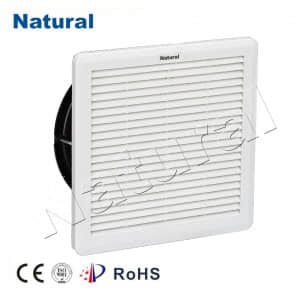In today's rapidly evolving world, where technological advancements shape our daily lives, it's crucial to focus not only on the exterior environment but also on the quality of the air we breathe indoors. With the growing concern over air pollution and its impact on health, air filter ventilation systems have emerged as a vital solution to ensure the well-being of occupants within buildings. This article explores the significance of air filter ventilation systems in enhancing indoor air quality and promoting a healthier living environment.

Indoor air pollution is a hidden threat that often goes unnoticed. The air inside our homes and workplaces can contain a cocktail of pollutants such as allergens, dust, pet dander, volatile organic compounds (VOCs), and even microorganisms. Prolonged exposure to such contaminants can lead to respiratory issues, allergies, and other health complications. This is where air filter ventilation systems play a pivotal role. Air filter ventilation systems are designed to effectively remove harmful particles and pollutants from indoor air. These systems work by drawing in outside air, filtering it through various layers of specialized filters, and then circulating clean, purified air throughout the interior spaces. The filters used in these systems are engineered to capture particles of different sizes, ensuring a comprehensive purification process.
One of the key benefits of air filter ventilation systems is their ability to reduce allergens and improve respiratory health. Individuals who suffer from allergies or asthma are particularly vulnerable to indoor air pollutants. By incorporating high-efficiency particulate air (HEPA) filters, these ventilation systems can efficiently trap allergens like pollen, dust mites, and mold spores, providing relief to allergy sufferers and promoting overall well-being.
Moreover, air filter ventilation systems contribute to a more comfortable and productive indoor environment. The removal of dust and pollutants not only improves air quality but also helps maintain the cleanliness of surfaces and furnishings. This translates to reduced cleaning efforts and a longer lifespan for interior materials, ultimately leading to cost savings.
In recent years, the COVID-19 pandemic has underscored the importance of proper ventilation in indoor spaces. Air filter ventilation systems have been recognized for their potential in minimizing the spread of airborne viruses. While these systems may not eliminate the risk entirely, they can play a significant role in diluting viral particles and reducing the overall viral load in enclosed spaces.
When considering the installation of an air filter ventilation system, it's essential to select a system that aligns with the specific needs of the building and its occupants. Factors such as the size of the space, the types of pollutants present, and energy efficiency should be taken into account. Consulting with HVAC professionals can help determine the most suitable system for a particular environment.
In conclusion, air filter ventilation systems are a crucial tool in the pursuit of healthier indoor environments. By efficiently removing allergens, pollutants, and even potential pathogens, these systems contribute to improved respiratory health, increased comfort, and enhanced overall well-being. As we continue to prioritize our health and the quality of our living spaces, investing in air filter ventilation systems proves to be a step toward a cleaner, safer, and more enjoyable indoor environment.
 28 items Patent
28 items Patent
 28 items Patent
28 items Patent
 28 items Patent
28 items Patent

